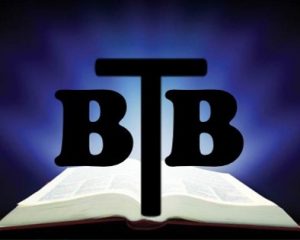This is a short summary of 2 of the most recognised of all the wisdom literature in the Bible – Ecclesiastes and the Song of Solomon. As recorded in The Bible Brief which summarises all the books of the bible in around 500 words or less.
When Ecclesiastes was written:
Approx 925 B.C.
Who:
Traditionally ascribed to King Solomon.
People & Places:
The Preacher, Jerusalem
Sound-Bites:
And I set my mind to know wisdom and to know madness and folly; I realized that this also is striving after wind. Because in much wisdom there is much grief, and increasing knowledge results in increasing pain. (Ch.1:17-18)
There is an appointed time for everything. And there is a time for every event under heaven. (Ch.3:1)
He who loves money will not be satisfied with money, nor he who loves abundance with its income. This too is vanity. (Ch.5:10)
The Messianic Link:
Messiah is typified in the wisdom of God, for, without Him, life is utterly meaningless.
The Book in brief:
Ecclesiastes is so depressing on the face of it that many have wondered why it is even included in the canon of scripture! The fact is, however, this is a work by the ‘Preacher’ that explores every aspect of life as it presents itself, and removes the concept or influence of God.
His conclusion is that life without the presence of God at its foundation is utterly meaningless and a ‘striving after the wind’ (Ch.1:14)
He finishes this work by encouraging people to ‘fear God and keep his commandments’ that all may be well with them.
Notes & Thoughts:
‘There is nothing new under the sun’ is perhaps a quote that is known by many, but few people know that it is straight from the Bible! (Ch.1:1) Ecclesiastes is a treasure trove of wisdom in the same way as Proverbs or Psalms are; it just seems to come out a bit depressing!
A good tip when reading this book is always to keep in mind that the Preacher is talking about life without divine purpose or influence, a meaningless life that could have no worthwhile conclusion—a bit like atheism!
The Song of Solomon:
When Song of Solomon was written:
Around 945 B.C
Who:
Traditionally ascribed to Solomon.
People & Places:
Solomon; Shulammite bride. Jerusalem
Sound-Bites:
“I am the rose of Sharon, The lily of the valleys.” (Ch.2:1)
“Your lips, my bride, drip honey; Honey and milk are under your tongue, And the fragrance of your garments is like the fragrance of Lebanon. (Ch.4:11)
The Messianic Link:
The Messiah is typified in the bridegroom’s love and marriage to the bride (The Church)
He is The Rose of Sharon and the Lily of the valley (Ch.2:1)
The Book in brief:
This is a book filled with the expressions of love between a man and a woman—namely King Solomon and the Shulammite bride.
The book follows the courting of the young couple, and as such is divided into three parts—the courtship itself, the wedding and the actual marriage.
The union of a man and woman is celebrated here as an expression of what God intended for his creation, and as such counters the extremes of asceticism (the denial of pleasure), and hedonism (pleasure above all things).

Notes & Quotes:
Whoever thinks that a Christian cannot enjoy sex, should perhaps take another look at the Song of Solomon!
The love expressions and marriage of King Solomon to the Shulammite bride is the example God gives us as his perfect will regarding our relationship with our wives; and this very much includes passion, as well as care and delight in our marriage partners.
Allegorically, there is also the parallelism between Christ and his Bride (the Church) alluded to in the relationship between the Shulammite bride and King Solomon.

